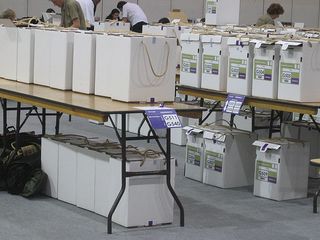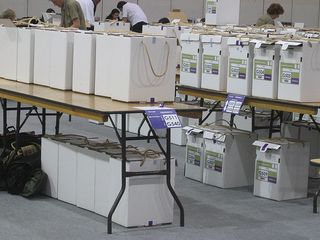 As protests have spread throughout the Arab world, Washington's democracy promotion community has shown an almost parallel level of fervor for the action on the ground in Tunisia, Egypt, Bahrain and Libya, with the hope of more to follow. Their enthusiasm, however, is tempered by their acknowledgement that democracy-building is a struggle and often comes with setbacks.
As protests have spread throughout the Arab world, Washington's democracy promotion community has shown an almost parallel level of fervor for the action on the ground in Tunisia, Egypt, Bahrain and Libya, with the hope of more to follow. Their enthusiasm, however, is tempered by their acknowledgement that democracy-building is a struggle and often comes with setbacks.
But one of the biggest battles of how to "democratize" the region may take place in Washington when those stakeholders who claim they would love to see Arab democracy want to have their say in what kind of democracy and for whom.
Carnegie Endowment's Tom Carothers, writing in the Washington Post, points out that supporting democracy in Egypt is one thing, but determining outcomes is another.
A perennial tension in supporting democracy abroad is maintaining a clear line between bolstering key democratic principles - such as political openness and fair competition - and trying to shape particular electoral outcomes. When we begin to choose favorites from a field of political competitors and seek to give them a boost, we step over this line. Not only do such efforts at engineering electoral outcomes undercut our credibility, they also usually backfire against the very people we are trying to help. Witness the futility of the efforts of U.S. diplomats in Iraq to throw U.S. weight behind certain candidates or parties during the various elections since 2005.
If Egyptians decide to allow the Muslim Brotherhood to participate in the next presidential and parliamentary elections - a decision they will make through their own constitutional reform process - we will have to make a clear choice if we wish to aid Egypt's political party development. Either we open our programs to all legally registered nonviolent parties, or we stay away from political party support.











Recent Comments